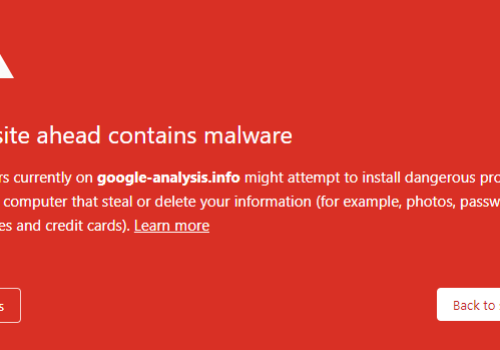Hey there! If you’re trying to decide between Squarespace and WordPress for your website, you’re not alone.
Both are powerhouse platforms, but they cater to different vibes and needs. As someone who’s spent years crafting words to sell ideas, I’ve dug into the latest reviews, user chatter on X, and expert insights to break it down for you.
Whether you’re a small business owner, a blogger, or a creative just wanting a sleek online presence, this 1500-word comparison will help you pick the right tool.
Let’s dive in with a conversational tone and simple English, so it feels like we’re chatting over coffee.
What Are Squarespace and WordPress, Anyway?
First, let’s clear up what these platforms are, because they’re not quite the same beast.
-
Squarespace is an all-in-one website builder. Think of it like a ready-made meal kit: everything you need—hosting, templates, support—is in one neat package. You pay a monthly fee, and it’s super beginner-friendly, with no coding required. It’s perfect for folks who want a polished site up fast.
-
WordPress comes in two flavors: WordPress.com (hosted, simpler) and WordPress.org (self-hosted, more control). For this comparison, we’re focusing on WordPress.org, the open-source version most people mean when they say “WordPress.” It’s a content management system (CMS) that gives you tons of flexibility but requires you to handle hosting, plugins, and updates yourself. It’s like cooking from scratch—you can make anything, but it takes more effort.
Squarespace powers about 7.6 million websites, while WordPress dominates with over 34 million, including big names like The New York Times and Bloomberg.
So, both are legit, but which one’s your jam? Let’s compare them across key areas: ease of use, design, customization, pricing, SEO, e-commerce, blogging, and support.
Ease of Use: Beginner-Friendly or Tech-Savvy?
If you’re new to website building, ease of use is probably your top concern.
-
Squarespace is the champ here. It’s got a drag-and-drop editor that’s intuitive and visual, so you see exactly what your site will look like as you build it. You can have a working website in minutes—just pick a template, tweak the text and images, and boom, you’re live. Users on X rave about its simplicity, with one saying, “Squarespace is so much easier than WordPress. One little change in WordPress can mess everything up.” It’s perfect if you want a “set it and forget it” experience.
-
WordPress has a steeper learning curve. Its block-based editor (called Gutenberg) is decent, but you’ll need to navigate a dashboard that can feel cluttered. You also have to set up hosting and install plugins for basic features like contact forms. For beginners, it can feel overwhelming, as one Reddit user vented: “Trying to blog on WordPress was like all my tech nightmares come true.” But if you’re tech-savvy or willing to learn, WordPress’s complexity becomes a strength.
Verdict: Squarespace wins for beginners or anyone who values speed and simplicity. WordPress is better if you’re ready to roll up your sleeves.
Design and Templates: Who’s Got the Prettier Looks?
Your website’s design is its first impression, so let’s talk aesthetics.
-
Squarespace is known for its stunning, modern templates. They’re sleek, professional, and optimized for mobile right out of the box. Whether you’re a photographer, blogger, or small business, Squarespace’s designs scream “classy.” The catch? You’re limited to their templates, and while you can tweak them, you can’t overhaul the code completely. Still, reviews praise their quality, with one saying, “Squarespace’s templates are perfect for portfolios and e-commerce sites.”
-
WordPress offers thousands of themes—over 31,000 in its directory and third-party marketplaces. You can find a theme for any niche, and if you can’t, a developer can build one from scratch. The downside? Quality varies, and some themes require coding to look right. Plus, you might need plugins to match Squarespace’s mobile-ready polish. A review noted, “If you have a specific look in mind, you can almost certainly find a WordPress theme for it.”
Verdict: Squarespace for gorgeous, ready-to-go designs with less hassle. WordPress for endless variety, if you’re okay with some setup.
Customization: How Much Control Do You Want?
Customization is where these platforms really diverge.
-
Squarespace keeps things controlled. You can tweak templates with its drag-and-drop editor, add built-in features like pop-ups or newsletters, and even dabble in custom CSS if you’re feeling fancy. But you’re limited to Squarespace’s ecosystem, with only about 40 extensions. A review highlighted, “Squarespace’s feature quality is consistent, making it user-friendly and less risky.” Still, if you need something super specific, you might hit a wall.
-
WordPress is the king of flexibility. With over 60,000 plugins, you can add almost any feature—e-commerce, forums, you name it. Want a social network? There’s a plugin for that. Need custom code? Hire a developer or dive in yourself. But this freedom comes with a catch: managing plugins can be a headache, and incompatibilities are common. One user complained, “There are over 850 photo gallery plugins. How is anyone supposed to sort through that?”
Verdict: Squarespace for simple, reliable customization. WordPress for limitless possibilities, if you can handle the complexity.
Pricing: What’s the Real Cost?
Money talks, so let’s break down the costs.
-
Squarespace has straightforward pricing: plans range from $16 to $52 per month (billed annually). Everything’s included—hosting, templates, SSL, and support. The Personal plan ($16) is great for basic sites, while Commerce plans ($28–$52) suit e-commerce. There’s a 14-day free trial, but no free plan. A review noted, “The Commerce Basic plan is the best value—no 3% transaction fees.”
-
WordPress is free to download, but you’ll pay for hosting ($3–$50/month), a domain ($10–$20/year), themes ($0–$100), and plugins ($0–$200/year). Costs can add up, but you only pay for what you need. A review said, “If you stick to a sensible budget, WordPress is more economical.” For example, hosting with SiteGround might cost $6/month, and a premium theme could be a one-time $50.
Verdict: Squarespace for predictable, all-in-one pricing. WordPress for budget flexibility, but watch for hidden costs.
SEO: Will Your Site Rank on Google?
Search engine optimization (SEO) is crucial for getting found online.
-
Squarespace has built-in SEO tools: meta titles, descriptions, custom URLs, and Google Analytics on all plans. It’s easy to use, and recent updates have improved site speed, with some Squarespace sites hitting Google’s Core Web Vitals targets. However, you can’t add third-party SEO plugins like Yoast, which limits advanced tweaks.
-
WordPress shines for SEO pros. Plugins like Yoast let you fine-tune every detail, from rich data markup to XML sitemaps. Your site’s speed depends on your hosting and optimization, so scores can range from 10 to 99. A review warned, “WordPress wins for advanced SEO, but you need time to learn it.”
Verdict: Squarespace for hassle-free, decent SEO. WordPress for ultimate control, if you’re ready to study up.
E-Commerce: Selling Made Simple?
If you’re running an online store, e-commerce features matter.
-
Squarespace offers robust e-commerce on its Business and Commerce plans. You get unlimited product listings, abandoned cart recovery, gift cards, and Instagram selling. It supports Stripe and PayPal but has limited payment gateways. A review praised, “Squarespace’s e-commerce features are wider-ranging than WordPress’s.”
-
WordPress relies on plugins like WooCommerce, which is free and fee-free (except for payment gateways). You can customize endlessly, but setup is complex, and advanced features often require paid plugins. A review noted, “WordPress allows much more e-commerce customization.”
Verdict: Squarespace for easy, built-in e-commerce. WordPress for complex stores with custom needs.
Blogging: Who’s the Content King?
Blogging is a big deal for many websites, so let’s see how they stack up.
-
Squarespace has solid blogging tools: categories, tags, and a clean interface. It’s great for casual bloggers, but it lacks advanced features like version history. A review called it “the best among website builders.”
-
WordPress was born for blogging. It offers autosave, version history, user roles, and thousands of blog-specific themes. You can add plugins for anything, like recent post widgets. A review said, “WordPress is the better solution for blogging.”
Verdict: Squarespace for simple blogging. WordPress for serious bloggers or content-heavy sites.
Support: Who’s Got Your Back?
When things go wrong, good support is a lifesaver.
-
Squarespace offers 24/7 support via live chat and email, with a robust help center. Users love the centralized help, with one saying, “Squarespace’s online chat is exceptionally good.”
-
WordPress has no official support since it’s open-source. You rely on forums, tutorials, or your hosting provider. If you’re stuck, you might need to hire a developer. A review warned, “WordPress is a far more complex beast.”
Verdict: Squarespace for reliable, direct support. WordPress if you’re okay with DIY fixes.
The Final Word: Who Wins in 2025?
So, Squarespace or WordPress? It depends on you:
-
Choose Squarespace if you’re a beginner, creative, or small business owner who wants a beautiful site fast, with minimal tech hassle. It’s ideal for portfolios, small shops, or blogs where ease and design trump complexity. The all-in-one pricing and support make it a stress-free choice.
-
Choose WordPress if you’re tech-savvy, need total control, or plan to scale a complex site. It’s perfect for bloggers, large stores, or anyone who loves customizing every detail. Just be ready to invest time and possibly money in setup and maintenance.
Still unsure? Try Squarespace’s 14-day free trial or set up a free WordPress site with budget hosting to test the waters. Your website is your online home—pick the one that feels right for your goals.
What do you think? Are you leaning toward Squarespace’s simplicity or WordPress’s power? Let me know your thoughts!







